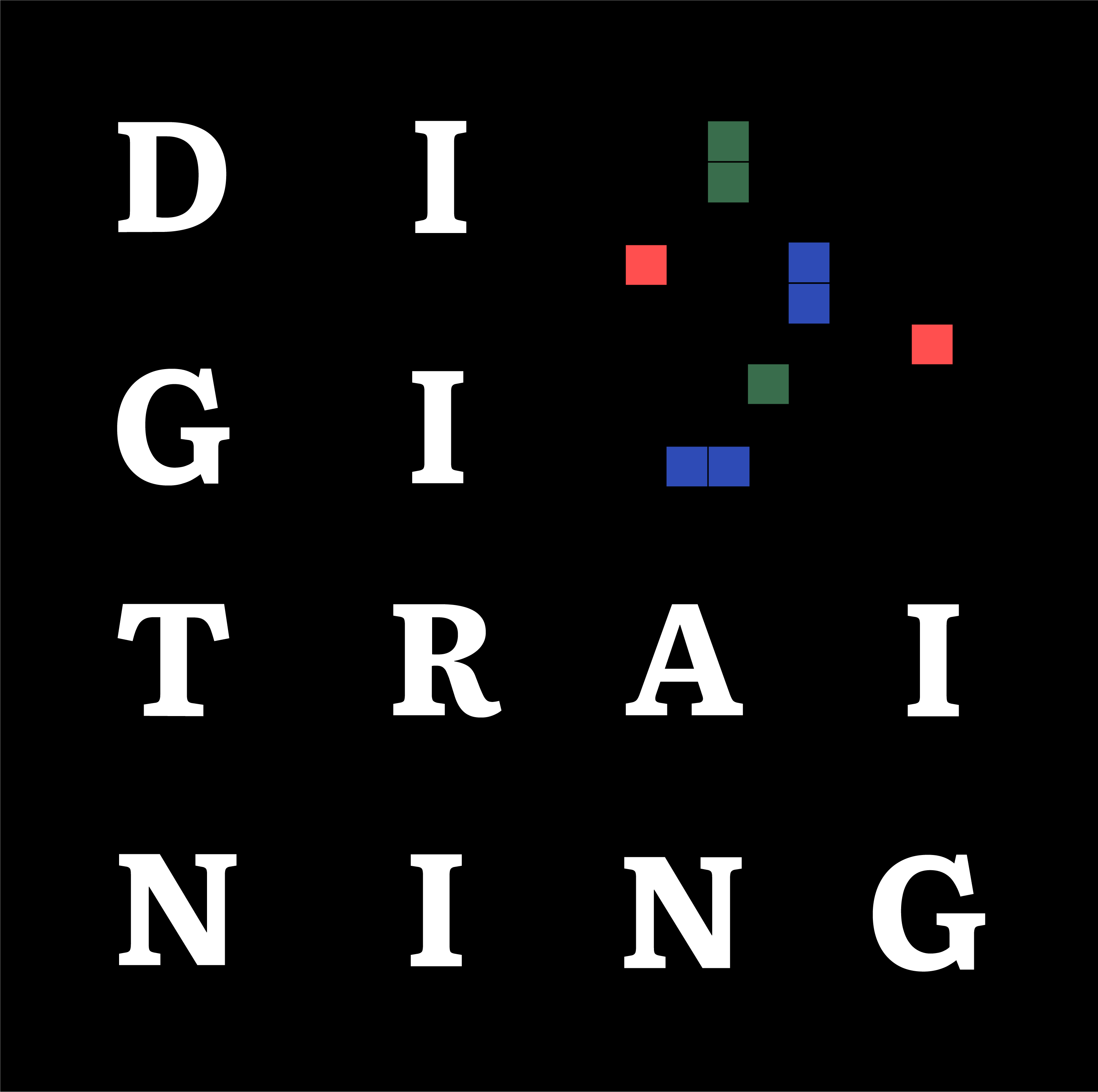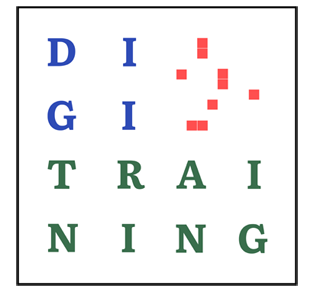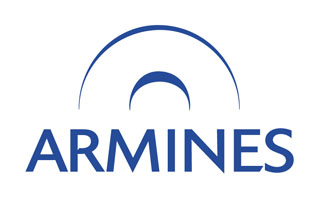PRIVACY & COOKIE POLICY
Privacy Statement
By virtue of the Call for proposals EACEA-28-2019, DigiTraining, Digital and Audiovisual Capacity Building for Accessible Heritage, is a project funded by the European Commission through the Creative Europe Programme and managed under the responsibility of FORTH: Foundation for Research and Technology – Hellas, with headquarters in Irakleio, Greece.
The DigiTraining Project aims to provide a large number of CCI organisations with new digital skills and tools and with the management capabilities to deal and benefit from them. It focuses on small or midsize museums and other tangible or intangible heritage organisations with facilities accessible to the public, working to:
- Give to a large number of organisations training on digital technology and on digital related management, to improve the experience of their audiences, better confront management challenges including data management, and increase monetisation options.
- Analysing the needs and capabilities through a specific training program for 6 organisation, resulting in a solid capacitation in digital skills and in the strategy and the management tools to deal with them.
- Provide the production of a virtual reality content for a number of three selected participants.
Registry
Idryma Technologias Kai Erevnas
Foundation for Research and Technology – Hellas
N. Plastira Street, n. 100 — 70013 Irakleio, Greece
FORTH: Foundation for Research and Technology – Hellas is the CONTROLLER of the USER’s personal data and informs them that these data shall be processed in accordance with the provisions of Regulation (EU) 2016/679 of 27 April (GDPR).
Contact and person in charge
Xenophon Zabulis
+302810391696
zabulis@ics.forth.gr
Register
DigiTraining’s stakeholder register.
Purpose and legal basis for the processing of personal data
Personal data is processed to enforce the cooperation and communication between the registry and the person in the register. The stakeholder register is considered to serve the public interest (YoL 2§). In addition, the register information can be used for event invitations, newsletter distribution, contact, dealings, reporting, and other information sharing and enabling collaboration.
Personal data may also be combined to perform analyses but in a way the reports are not identifiable by individuals.
Google Analytics is used to gain insights and improve the functionality of our website.
Description of the processed personal data
The processed personal data in the register is name and email address.
Retention period of personal data
Personal data shall be kept in a reliable manner for as long as it is appropriate for the communication of the DigiTraining project. The data will then be permanently deleted.
Regular transfers of data
The register data can be used within the DigiTraining project. Data will not be disclosed to outside the project.
Principles of protecting the register
The data in the register is kept technically secure. Unauthorised access to information is blocked, e.g. through the use of firewalls and other technical hedges. The register data shall be accessed only by the controller and by specially designated technical persons. Only certain persons have the right to process data in the registry. These persons are bound by the confidentiality of the information in the register. There are no physical copies of the registry.
Rights of subscribers
The person in the register has always right to:
1) request from the register controller access to personal data relating to him or her and the right to request rectification or erasure or restriction of processing of such information, and the right to transfer data from one system to another.
2) check and, if necessary, correct the data on him or her in the register. In this case, the request shall be made in writing to the registry controller. The person in the register has the right to rectification of the information that was wrongly recorded.
3) revoke the consent at any time without prejudice to the legality of the processing carried out before it is withdrawn; to the extent that the processing of personal data is based on the consent of the data subject.
4) be removed from all registers permanently and reliably.
5) make a complaint about the processing of personal data to supervisory authorities.
Leaving the register
It is possible to leave the register by sending a request to
comms@digitraining-heritage.eu
Cookie Policy
By using our website, you agree that we can place cookies on your device. If you want to restrict or block any of the above cookies, you should do this through the web browser settings for each browser you use and on each device you use to access the Internet.
You may refuse the use of cookies or withdraw your consent at any time by selecting the appropriate settings on your browser but please note that this may affect your use and experience of our websites. This policy statement is intended to inform you about the features and purposes of the cookies that we use.
Our use of cookies
We use on our website, for a variety of reasons, session record-keepers known as ‘cookies’. There are two main types of cookie, which should be carefully distinguished: functional cookies and performance cookies. Functional cookies must conform to technical requirements and are used to ensure proper and secure connection to the website. Performance cookies are used to record some of your preferences in order to make your surfing easier, faster and more convenient. They are also used to offer goods or services, and for statistical purposes. Our objective with the use of cookies is to enable you to use our website conveniently and to provide you with the best possible service during your site visits. They enable us to optimise our site.
What is a cookie?
Cookies are text files containing small amounts of information which are downloaded to your device when you visit a website. Cookies are then sent back to the originating website on each subsequent visit, or to another website that recognises that cookie. A cookie does not directly disclose your personal identity, Cookies are useful because they allow a website to recognise a user’s device, preferences and generally help to improve your online experience.
Types of cookies
In addition to the legal distinction between functional cookies and performance cookies, cookies can be divided into categories according to their origin, function and lifetime.
- First-party cookies (direct cookies): these cookies are set by us during your visit to our site.
- Third-party cookies (indirect cookies): these cookies are set by a third party when you visit our website (such as cookies set by Google, Twitter or Facebook.
- Functional cookies: these cookies monitor correct operation of the website. They include login cookies, registration cookies and language preference cookies. Functional cookies are first-party cookies.
- Performance cookies: these cookies are set on the website for statistical, social or commercial purposes or to generate general visitor profiles. The purpose of performance cookies is basically to make your browsing session easier, more convenient and more enjoyable. Performance cookies may be first-party or third-party.
- Cookies set for statistics purposes enable the site managers to see which website pages you have visited and to geographically locate the computer/device used, e.g. Google Analytics.
- Cookies set for social purposes enable users to share website content on the social networks Twitter, Facebook, et al if they wish.
- Cookies set for profiling purposes enable the site managers to establish user profiles so as to be able to display advertising suited to their main interests e.g. DoubleClick cookies.
- We may start using cookies set for advertising purposes, that record the advertisements that have been displayed during a user’s browsing sessions and their frequency. A number of cookies of this kind are used by Google Analytics. Convenience cookies may be either first-party or third-party cookies.
- Persistent cookies: also known as ‘tracking cookies’, these outlast an individual session and remain on your hard disk for a predefined period of time or until you choose to delete them.
- Session cookies: these are temporary cookies that enable visitors to navigate quickly and easily through the site during a browsing session. A browsing session begins when the visitor opens the browser window and ends when the visitor closes the window. All session cookies are deleted when you close your browser. Session cookies are usually functional cookies.
For more info on cookies
At http://www.allaboutcookies.org/ you can learn more about how cookies work.
The Internet Advertising Bureau (IAB), an alliance of online advertising agencies, offers a lot of useful information and advice on behavioural advertising and online privacy at http://www.youronlinechoices.eu/.
Your consent
When you visit our website for the first time, we call your attention to our cookies policy, so that if you wish you may configure your browser settings to limit or block the use of cookies. We also inform you how to consent to their use. You are free to accept or reject the cookies. However, you should be aware that if you refuse to accept cookies, this might make your browsing session on our website less convenient, or even impossible if you reject functional cookies.
Adjusting your browser settings
Any time you wish, you can adjust your browser settings for accepting or rejecting cookies. These settings can generally be found in your browser’s Options or Settings menu. For more information about these settings, we suggest you visit links below or click the Help tab in your browser.








